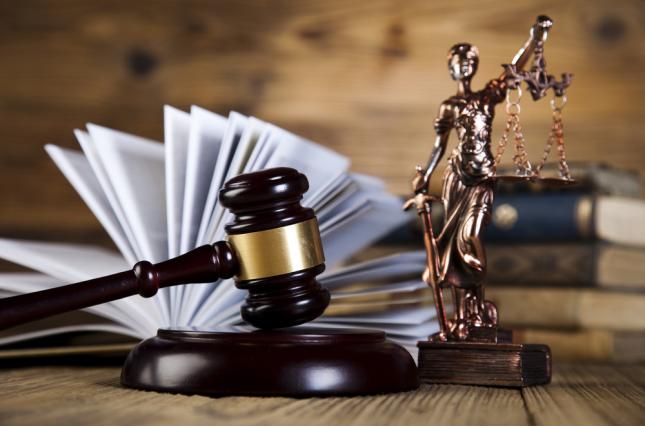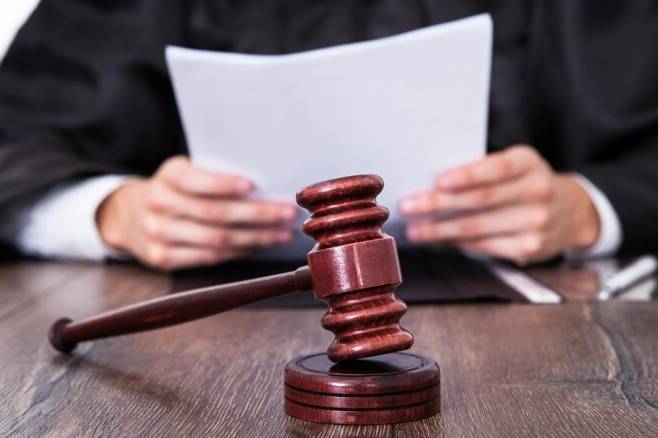 “Actual practice of the Supreme Court regarding the protection of property rights under martial law” – a lecture on this topic was delivered by the judge of the Supreme Court in the Cassation Civil Court, Serhiy Pogribny, during the online workshop.
“Actual practice of the Supreme Court regarding the protection of property rights under martial law” – a lecture on this topic was delivered by the judge of the Supreme Court in the Cassation Civil Court, Serhiy Pogribny, during the online workshop.
Serhii Pogribny devoted the first part of his speech to special issues related to the armed aggression of the Russian Federation, which arise during the settlement of civil cases.
The judge drew attention to the practice of the Supreme Court regarding the limitation of the jurisdictional immunity of the aggressor country, analyzed the resolutions of the Central Committee of the Supreme Court dated April 14, 2022 in case No. 308/9708/19 and dated May 18, 2022 in case No. 428/11673/19. In the first ruling, the Court, in particular, noted that the Russian Federation had exceeded its sovereign rights, guaranteed by Art. 2 of the UN Charter, and grossly violated the subjective rights of the plaintiff guaranteed by legal norms. The court applied the tort exception provided for in Art. 12 of the UN Convention on Jurisdictional Immunities of States and their Property, formulating the conditions for applying such an exception.
In the second decision of the CCS, the Supreme Court supplemented the previous conclusions and noted that maintaining the jurisdictional immunity of the Russian Federation would deprive the plaintiff, a citizen of Ukraine, of effective access to the court to protect his rights, which is incompatible with the rules of Article 1 Art. 6 of the Convention on the Protection of Human Rights and Fundamental Freedoms; the plaintiff’s appeal to the Ukrainian court is the only reasonably available means of legal protection. The court also noted that judicial immunity does not apply to the Russian Federation in view of the customary international law codified in the mentioned UN Convention, maintaining the immunity of the Russian Federation is also incompatible with Ukraine’s international legal obligations in the field of combating terrorism.
Serhiy Pogribnyi spoke about the determination of the proper defendant in claims for damages in the temporarily occupied territories. In the resolution of January 25, 2023, in case No. 233/2082/21, the Supreme Court of Ukraine concluded that compensation for damage caused by Russia’s temporary occupation of certain territories of the Ukrainian state rests entirely with the occupying state (Russia), and the state of Ukraine with all by possible means contributes to the compensation of material and moral damage.
The speaker analyzed the judicial practice regarding the possibility of resolving in a separate proceeding the application to establish the fact of forced resettlement with the simultaneous demand to establish the fact of damage caused by a terrorist act; regarding the revision of the decisions of the courts, which are currently in the temporarily occupied territory, regarding the issues of property rights and other property rights. In particular, in the resolution of the Supreme Court of Justice dated January 18, 2023, in case No. 663/1322/21, it was concluded that the presence of an object of property right or other property right in the temporarily occupied territory did not prevent the Supreme Court from resolving the dispute.
In the second part of Serhiy Pogribny’s speech, general questions regarding the protection of property rights in the current practice of the Supreme Court were discussed.
The speaker drew attention to the resolution of the Central Committee of the Supreme Court dated May 18, 2023 in case No. 759/2341/20. In this case, the court applied the Convention on Access to Information, Public Participation in the Decision-Making Process and Access to Justice on Matters Relating to the Environment (Aarhus Convention) and national legislation, made a conclusion regarding the plaintiff’s right to representation in court as his own environmental interests, so and environmental interests of society and its individual members for the purpose of protecting the violated environmental rights of a person and citizen or for the purpose of eliminating violations of the requirements of environmental legislation.
The judge cited the Supreme Court’s practice in cases involving a claim to cancel the registration of ownership rights to land acquired on the basis of a decision of the village council, adopted by its non-authorized members; on the claim of property sold within the bankruptcy case.
In the resolution dated February 22, 2023, in case No. 206/5891/16-ts, the Supreme Court of Ukraine concluded that a fair balance should be observed during the claim of property: the courts did not establish the inconsistency of the measure of state interference in the defendants’ property rights with the criteria of legitimate interference with the individual’s right to peaceful ownership of property formed in the established practice of the ECtHR, with which the Supreme Court agreed.
The speaker talked about the resolution of lawsuits regarding the recognition of the right to a residential building that has been rebuilt on its own. In the resolution of April 12, 2023, in case No. 511/2303/19, the Supreme Court of the Supreme Court determined that in the event of impossibility of dividing a building that has not yet been completed, the court may recognize the right of the parties to the dispute to the construction materials and structural elements of the house or, taking into account the specific circumstances, leave it to one of parties, and award compensation to the other.
Serhii Pogribny analyzed the practice of resolving lawsuits for the removal of seizure from property. In the resolution of the Supreme Administrative Court of Ukraine dated May 31, 2023, in case No. 296/314/19, it was concluded that the pledgee has priority in satisfying his claims at the expense of the subject of the pledge.
The judge paid attention to disputes between property co-owners. In the resolution of April 26, 2023, in case No. 303/4772/16-ts, the Supreme Court of Ukraine noted that outbuildings, namely a barn and a shed, are part of the main thing, and the transfer of ownership of the main thing to a new owner is possible only together with the main thing , that is, a house, an apartment in it. The speaker talked about the resolution of disputes between co-owners regarding the use of common premises in an apartment building (appeals of condominium decisions regarding the use of common property; taking into account the interests of property co-owners when resolving a dispute regarding joint use of it).
Serhii Pogribny emphasized the specifics of foreclosure on a mortgage, which is housing, in wartime. In the decision of June 22, 2022, in case No. 296/7213/15 of the Supreme Court of Ukraine, the Supreme Court concluded that the execution of the court’s decision to foreclose on the subject of the mortgage is suspended for the duration of martial law, as noted in the operative part of the court decision. In the resolution of March 22, 2023, in case No. 361/4481/19, the Supreme Court of the Supreme Court supported the conclusion of the Central Committee of the Supreme Court regarding the prohibition of eviction during martial law.
The online workshop was organized by the legal portal “Ratio Decidendi” and the journal “Law of Ukraine”.
Serhiy Pogribny’s presentation – http://surl.li/hzyqa .



